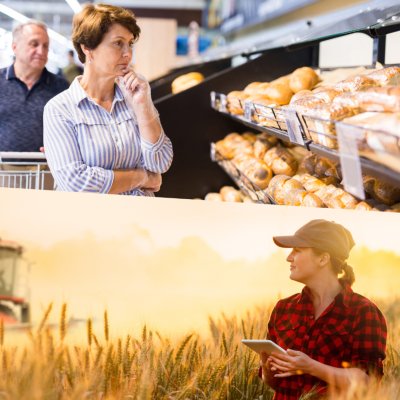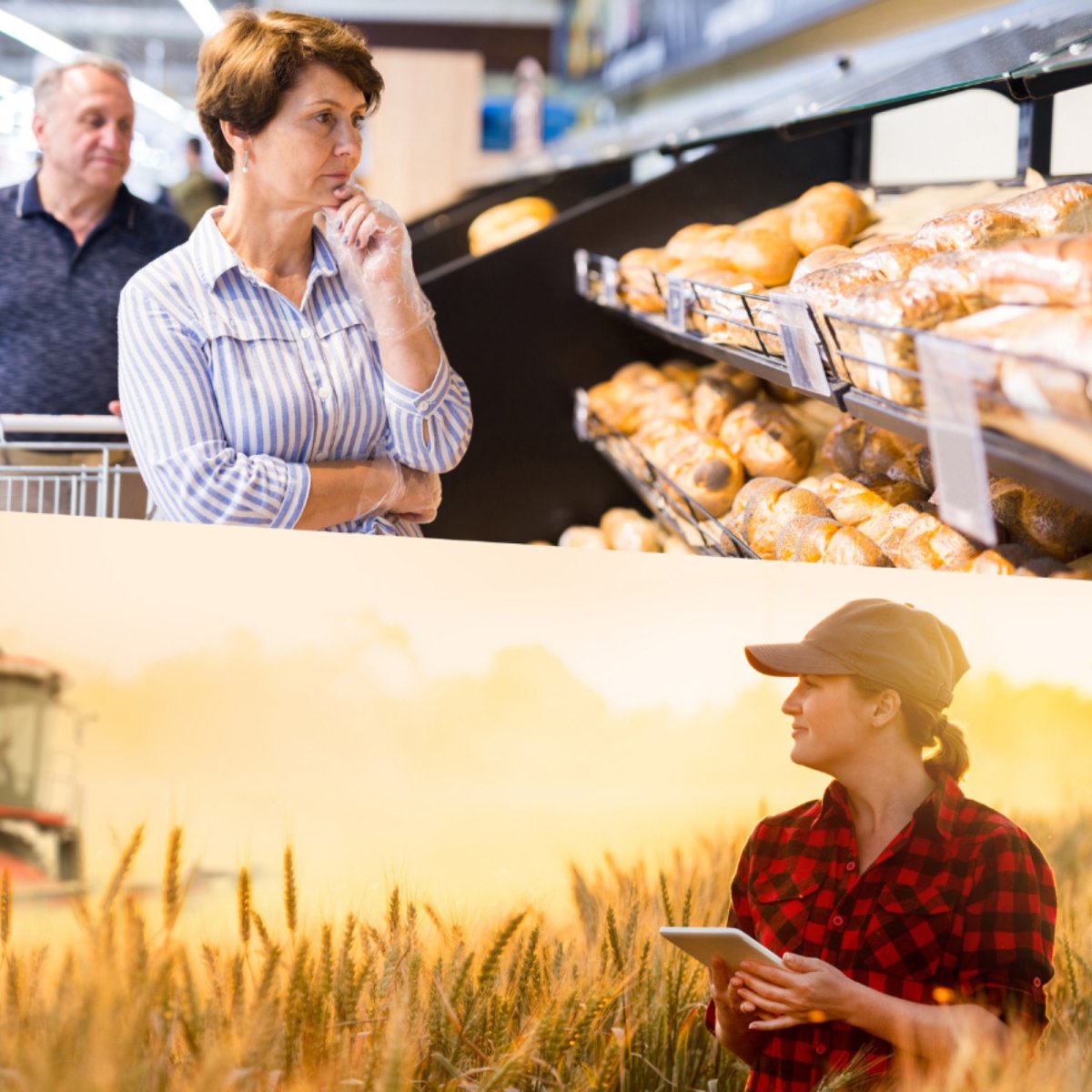 Copyright: Shutterstock
Copyright: Shutterstock
Why does the agri-food system need to change and what can that look like?
The UK’s agri-food system has many faults which have come about over decades of consolidation and a lack of attention from those in power, happy to leave things to the market. Recent experiences of food shortages must be a moment for people in government, national, local, and international and in control to wake up and smell the coffee. Until then, let’s articulate some of the key issues and enabling factors for positive change.
It goes without saying that food is essential—as important as things like housing and energy. Therefore, the whole agri-food system is essential. However, it is hard to find people in positions of power articulating its many problems and the solutions to make it better.
By the ‘agri-food system’, we mean all the steps along the farm to fork process, including the inputs into farming and outputs from consuming. We are talking production, processing, distribution, retail, procurement, and all the other elements.
The system has numerous challenges and problems. It is often described as a high cost and low margin sector, which is not a good thing. There is a triple economic challenge underpinning it: low farm incomes, poor worker wages, and the unaffordability of healthy food for millions of Brits. For example, our Unpicking Food Prices work found that farmers often receive less than 1% of the profit made on key food items – we can all agree that is an issue.
It is predicated on unfairness and severe power imbalances. Just 9 supermarkets control over 90% of the UK’s food retail market. Producers and workers have little-to-no negotiating power. This has led to the common use of abusive practices by supermarkets and large intermediaries. Meanwhile, millions of people in Britain living in poverty can’t access enough food on a regular basis.
Production and consumption of food and drink has its environmental impact too. It contributes roughly 35% of UK greenhouse gas emissions, is a major driver of biodiversity loss, and is a significant contribution to water and air pollution. The wasting of resources (e.g. from inputs like fertiliser to food itself) is built into how the highly specified, just-in-time system works.
It is not too dramatic to say that the UK’s agri-food system is sitting on a knife’s edge. For example, top fruit growers are being forced to grub up orchards because they are not profitable. Growers have been forced to plant fewer crops so that they don’t go out of business. Global supplies are at risk due to climate impacts. And the government’s approach to new trade deals will exacerbate these issues now and into the future.
Given the recent shortages of fresh produce, and the chance that this could happen again soon, it seems more important than ever for people in Government and Parliament to start building towards a more resilient agri-food system.
But what could a responsible UK government, administrations and parliaments do to start shifting the agri-food system to a more sustainable, resilient, and fairer footing?
In the immediate future, we need to ensure that a proper regulator can enforce strong fairness and responsibility from supermarkets and large intermediaries. That regulator should have a robust set of regulations that it can enforce. The Groceries Code Adjudicator does a job, but it could be argued that we now need more than an adjudicator. We need a fully-fledged regulator that can enforce rules on contracts, deals and price negotiations along the whole supply chain.
On top of that, the Government must change tack on trade policy. For the sake of farmers, the supply chain, and citizens, core environmental, animal welfare, and food safety standards must be built into trade deals. We should not be creating a race to the bottom.
Over the medium and longer-term, we need a government who is willing to invest in the diversification of routes to market. Investing in local networks and the growth of small and medium-sized enterprises (SME) could do so much good, from addressing power imbalances and paying farmers fairly to creating better jobs and getting more healthy, affordable food to people.
The government’s approach to farming policy must be aligned with the transition to more sustainable and agroecological farming. This includes the schemes and grants that currently fall under Environmental Land Management and the Agricultural Transition Plan. By supporting soil health management, abundant on-farm nature, and the reduction in the use of inputs (e.g. synthetic fertiliser, pesticides, and animal feeds), we can better safeguard food production and support healthier farm business margins too.
To start addressing the food poverty gap, government could look to bolster the Healthy Start voucher scheme by giving families on low incomes more money to spend on healthy food. At the same time, the Government should be using its influence over procurement to ensure that things like Free School Meals are built on healthy food produced by local sustainable farmers.
These are just some of the things that could start to help that shift make progress, but there must be recognition that there are wider economic challenges like wage stagnation, high inflation, out of control rent and house prices, and Universal Credit not meeting the true cost of living which play a part. And an acknowledgement that we cannot leave the food system to the market – it is too important.
Sustainable Farming Campaign: Sustain encourages integration of sustainable food and farming into local, regional and national government policies.
Sustain
The Green House
244-254 Cambridge Heath Road
London E2 9DA
020 3559 6777
sustain@sustainweb.org
Sustain advocates food and agriculture policies and practices that enhance the health and welfare of people and animals, improve the working and living environment, promote equity and enrich society and culture.
© Sustain 2024
Registered charity (no. 1018643)
Data privacy & cookies








